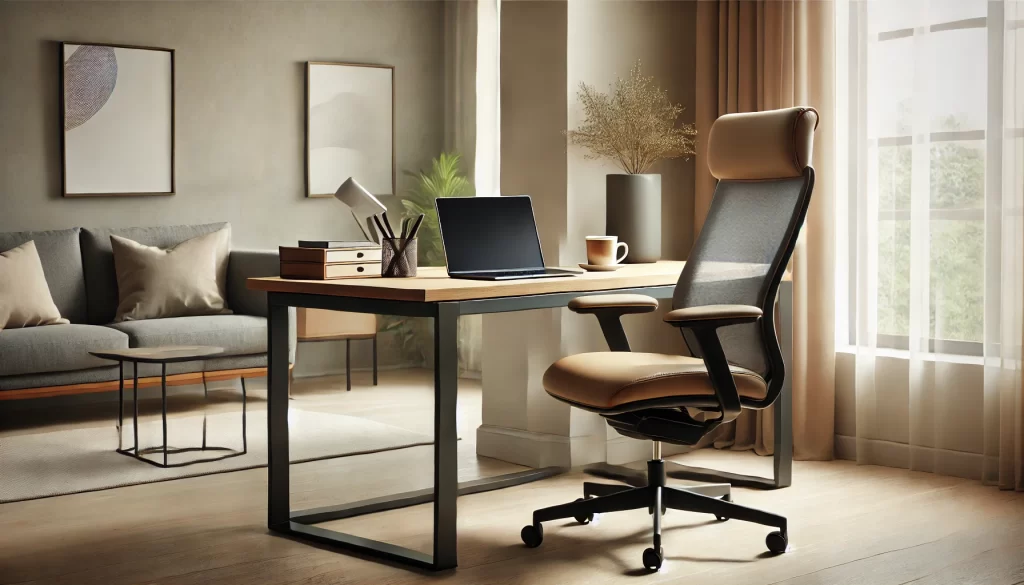Weighing the Good and the Not-So-Great of Remote Work

The Pro: No Commute
One of the biggest perks of working from home is ditching the daily commute. No more sitting in bumper-to-bumper traffic, listening to talk radio, and watching the clock tick away.
You can go from your bed to your desk in about five minutes. Not only does this save time, but it also saves money on gas, coffee stops, and car maintenance.
Plus, it’s better for the environment. Your wallet, nerves, and the planet all breathe a sigh of relief when you work remotely.
Without the daily grind of commuting, many folks also report feeling more relaxed and productive. You start your day without the stress of road rage or crowded public transport, giving you more mental energy for work.
But, there’s always a trade-off, right? We’ll get to that later.
The Con: Lack of Boundaries
When your home becomes your office, it’s hard to draw a line between work time and personal time. Suddenly, it feels like work is always there, peeking around the corner like an unwanted guest at a dinner party.
You might find yourself checking emails at 10 PM or working through lunch just because “the office” is a few steps away.
This lack of boundaries can lead to burnout if you’re not careful. It takes some real discipline to put the laptop away at 5 PM and resist the urge to “just do one more thing.”
Without clear lines, you can end up working longer hours than you would at a traditional office. So, while the commute is gone, you may find work creeping into your evenings and weekends.
The Pro: Flexibility
Working from home offers a level of flexibility that most people only dream of. Want to wear pajamas while you crunch numbers? Go for it! Need to take a break to pick up your kids or throw in a load of laundry?
No problem. Remote work allows you to tailor your day to suit your personal and family needs, which can be a game-changer for work-life balance.
Not only can you control your schedule (depending on the job, of course), but you can also control your environment. Hate office gossip or that one coworker who always microwaves fish?
That’s a thing of the past. You can create your ideal workspace, with your favorite coffee, comfy chair, and zero distractions. Well, unless your dog decides now is the perfect time to play fetch.
The Con: Isolation
For all the flexibility and comfort working from home offers, it can get lonely. You miss out on the social aspect of an office environment—those impromptu hallway chats, office birthday parties, and even the water cooler gossip.
Over time, that isolation can take a toll on your mental health and make you feel disconnected from your coworkers.
While technology has made it easier to stay in touch with tools like Zoom and Slack, it’s not quite the same as a face-to-face interaction. If you’re an extrovert, you might find remote work a little too quiet.
Finding ways to stay socially connected, like virtual meetups or regular in-person lunches with colleagues, can help ease that loneliness.
The Pro: Increased Productivity
Surprisingly, many people find they are more productive at home than in the office. With fewer interruptions from coworkers, office meetings, or background noise, you can focus more on your tasks.
Remote workers often report getting more done in less time. That’s because at home, you’re in control of your environment—you can set it up to fit your personal work style.
Additionally, the flexibility of remote work allows people to work when they’re most productive. Not a morning person? Start your day a little later and work into the evening. Need an afternoon break?
No problem—work when you’re at your best and maximize your productivity.
The Con: Distractions at Home
On the flip side, home can be full of distractions. Laundry, kids, pets, Netflix…you name it, it can pull you away from your tasks. It takes a good bit of self-discipline to stay focused when there’s a comfy couch and your favorite show calling your name.
For some, it’s harder to stay on track at home, especially when there’s no boss peeking over their shoulder.
It helps to create a designated workspace and a daily routine to keep you in “work mode.” Otherwise, you might find yourself working in bursts between household chores and Netflix binges, and that can seriously mess with your productivity.
The Bottom Line
Like anything in life, working from home has its ups and downs. The freedom and flexibility are fantastic, but it comes with challenges like isolation and blurred boundaries.
The key is to find what works best for you—whether it’s setting clear work hours, scheduling social breaks, or creating a distraction-free zone at home.
Have some questions? Click here to get FREE personalized answers.
This article was created with the aid of AI tools.

Leave a Reply
You must be logged in to post a comment.